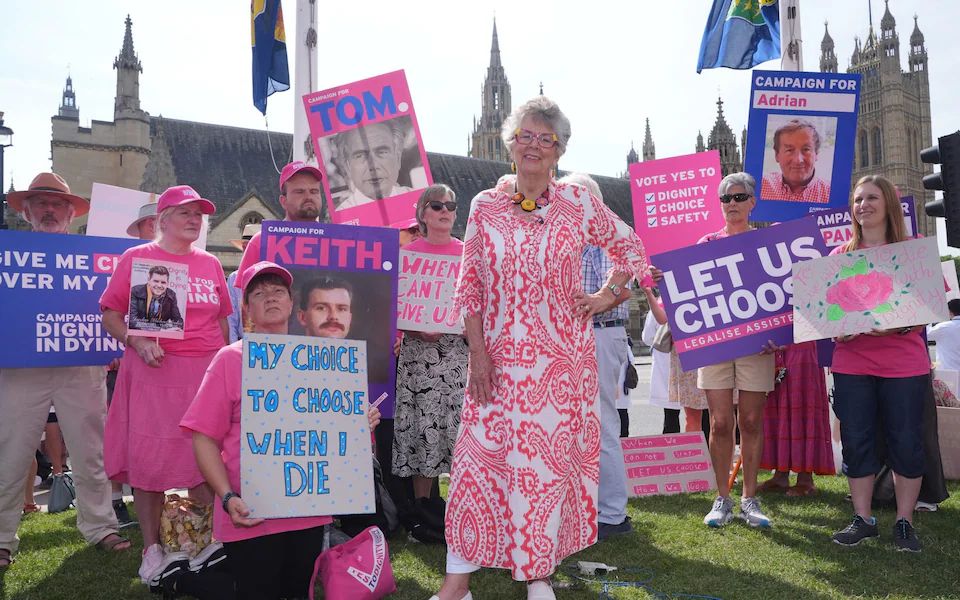Assisted dying is on track to be legalised in England and Wales after MPs voted in favour of the Terminally Ill Adults (End of Life) Bill in what has been described as the most consequential parliamentary decision of the current session.
In a closely contested vote on Friday, the House of Commons approved the legislation by 314 votes to 291 a narrow majority of 23 paving the way for adults with a terminal illness and less than six months to live to seek medical assistance to end their lives.
The Bill, led by Labour MP Kim Leadbeater, represents a significant shift in end-of-life care policy and could see assisted dying available to eligible patients by 2029. However, questions remain over whether the service will be delivered through the NHS or a new, separate system.
Leadbeater hailed the result as a step toward a more compassionate system:
“This legislation corrects the profound injustices of the status quo and offers a safe and dignified choice to those facing unbearable suffering at the end of life.”
Despite its passage, the Bill remains highly controversial and has faced opposition from the Royal Colleges of Physicians, Psychiatrists, and Pathologists, as well as cross-party MPs concerned about its ethical and practical implications.
Critics argue that the Bill lacks sufficient safeguards to protect vulnerable individuals and could erode trust in medical professionals. Others expressed concern about the fragile state of the UK’s palliative care services, warning that inadequate support might pressure patients into choosing assisted death.
Diane Abbott, the veteran Labour MP, voiced strong opposition, calling the Bill “literally a matter of life and death” and warning that it could have grave unintended consequences:
“What could be more unjust than to lose your life to appallingly drafted legislation?”
In contrast, Conservative MP Kit Malthouse defended the Bill, saying it gave a voice to the terminally ill who are begging us for mercy.
“We honour life by giving it meaning and power. And the one thing that dying people ask for in their final moments is control.”
Sir James Cleverly, another prominent opponent, warned of a fundamental shift in the doctor-patient relationship:
“This introduces a permanent question mark in the minds of seriously ill patients — a fear about what their doctors truly expect of them.”
Former minister Tom Tugendhat echoed these concerns, urging MPs to consider the long-term consequences of their decision.
“When the first 18 or 19-year-old applies for an assisted death, it will be on our consciences. This decision fundamentally alters the relationship between the individual and the state in a way that cannot be undone.”
Under the new law, patients seeking an assisted death must receive approval from two doctors and a specially appointed panel comprising a psychiatrist, a social worker, and a legal expert. This model replaces an earlier proposal requiring High Court sign-off, which was dropped after concerns during the Bill’s Second Reading last November.
Professional bodies involved in end-of-life care have warned that the health system may not yet be equipped to implement the new law. Sir James cited their concerns, noting potential shortages in staffing and resources:
“When the people responsible for delivering this say they are not ready, we should listen.”
There were also concerns raised about the lack of representation from disabled communities during the Bill’s drafting. Labour MP Vicky Foxcroft criticised the absence of disabled voices in the debate, calling it astonishing.
Yet support for the Bill extended beyond Parliament. Dr Peter Prinsley, reflecting on his decades in medicine, said his views had changed with time:
“As a young doctor, I found these measures unconscionable. But now I’m convinced this is a necessary and humane change. We are not choosing between life and death, but between death and death and there must be dignity in that choice.”
With the Commons vote now secured, the legislation will move to the House of Lords for further scrutiny. If passed there, assisted dying will become legal in England and Wales for the first time marking a historic turning point in UK medical and ethical law.



